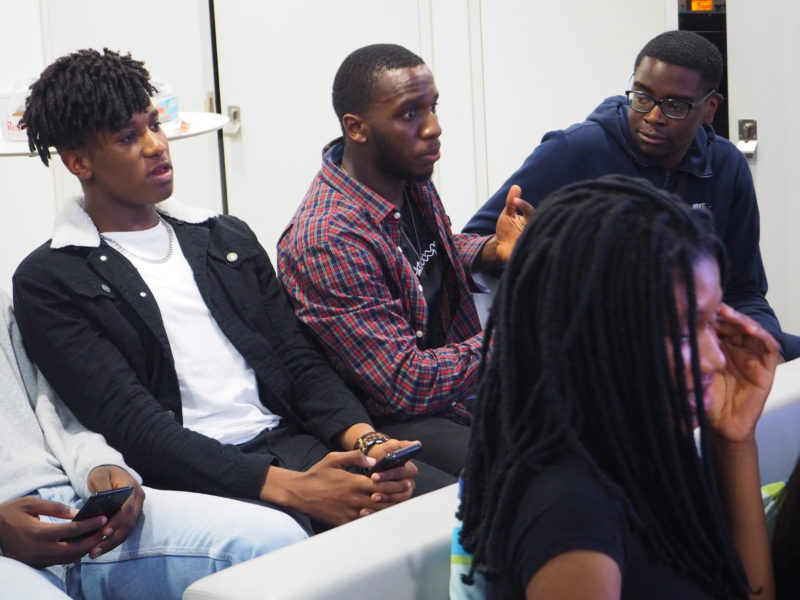
In the bright environs of the Science Gallery Café, I sat down with President of Trinity Afro-Caribbean Society Olashile (Shile) Alimi and Treasurer David Ola to talk about their experience as executive committee members of one of Trinity’s most prominent cultural societies.
The society is all about celebrating and protecting the vibrancy of Afro-Caribbean culture in Trinity through a programme of fun and educational events. Alimi spoke about her “pet project”, and what she believes could be a highlight of the society’s events next term, Afrojam – a mini-festival bringing together demonstrations of art, music, poetry and dance. Through working with performance groups across Dublin’s Afro-Caribbean community, the society hopes to create a multi-medium narrative that retells common stories from a new cultural perspective.
Any society navigating Trinity’s densely populated community of clubs values the importance of visibility. For a cultural society representing and promoting the interests of a College minority, however, visibility only becomes more vital. Ola mentioned how major societies increase awareness and boost reputation through collaborative events, and he is seeking to emulate a similar approach with the Afro-Caribean Society.
Getting involved with a wider audience, he said, is central to the society’s mission. With this in mind, upcoming event “Wild N’ Out” will be involving sister societies from Maynooth University, Technical University Dublin and Dublin City University.
If member feedback is anything to go by, the strategy appears to be working. Many first years Alimi and Ola spoke to said that the Afro-Caribean Society’s stand was the first one they sought out in the clamour of Front Square during freshers’ week.
As much as the melting-pot ideal of universities is welcomed by cultural societies, individually they fulfil the need for a comfortable and safe space in which a minority is not minoritised or subsumed into a general student culture. Referencing the success of its recent “Letters to the Motherland” panel discussion, Ola suggested that the society could provide a safe environment for the debate of sensitive issues moderated by students with a direct personal awareness.
As president, Alimi appears both quietly proud and almost embarrassed by her leading position. Since becoming involved in her first year, she has become an accidental role model. She recounted her surprise at younger students telling her how much she inspired them to be involved. Listening to her speak about her vision for the future of the society – which she hopes will include further growth and diversification – it was impossible to miss her genuine emotional attachment.
This sentiment is echoed by Ola, a former JCR president, who said that becoming involved in the Afro-Caribbean Society has been his most rewarding experience in Trinity (a statement that he jokes will create riots amongst his former JCR colleagues). Their accounts of the passionate discussion and carefree celebration members enjoy serve as the best advertisement for the society.
Throughout our conversation, it was evident that both students were looking towards the future of the society and not limiting their vision to their current term of office. The majority of members are of Afro-Caribbean ethnicity but the society welcomes all, and while Ola pointed out that this year witnessed a significant rise in new members from different cultural backgrounds, both firmly believe there is room to improve.
The two briefly discussed College’s somewhat imperfect relationship with diversity and representation. Alimi questioned the absence of any Erasmus equivalent link with an African or Caribbean university, but Ola still commended the institution’s “willingness to try” and expressed guarded optimism about the potential of recent developments – such as the new Trinity College Dublin Students’ Union (TCDSU) ethnic minorities officer – and the offer of scholarships to Kenyan students.
There is clearly still work to be done, including greater minority representation in the university’s hierarchy and the development of a reporting process for race-related incidents. The positive work of the Afro-Caribbean Society and its members though, is a highly encouraging place to start.






